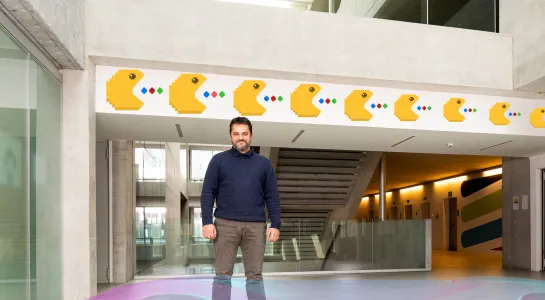
The Lesson of Gaming for Music
“I would love to tell you that I was first introduced to dance music in underground Berlin clubs, where mysterious resident DJs blew my teenage mind (…) with beats and synth lines. But that would be a lie. My first introduction to dance music came in the form of a futuristic 90s racing game called Wipeout.”
Keza MacDonald, a Guardian journalist, describes how she got into dance music this way, as well as into the Chemical Brothers and Offspring, all discovered in compulsive gaming sessions at friends' houses.
For the recording industry, the world of video games represents an opportunity for access to players: either as promotional vehicle for discovering new music (just think of the radio stations present on the customizable cars of Grand Theft Auto) or, more recently, as a virtual stage for the concerts of pop artists, or rather, their avatars (like Lil Nas X on Roblox and Ariana Grande on Fortnite). But what has always driven the exchange economy between the two sectors is synch licensing, i.e. the licensing of the right to synchronize a song on another kind of audiovisual content (counting all synchronization media deals, they were equivalent to $632 million in 2023 , i.e. 2.2% of the overall turnover of the recording industry, IFPI Global Music Report 2024).
But beyond a showcasing its pop catalog and bringing an additional source of revenue, there is another thing the world of gaming can give to the music industry, namely a lesson in economics.
To understand what it is, we must compare the two sectors starting from their revenue models. The recording industry has a turnover which is nearly 90% music sales, made through physical distribution of CDs and LPs and especially digital downloading and streaming. The latter, which is worth 67% of overall sales, has progressively brought the industry out of the economic impasse in which it was in the early 2000s. The problem with the pop music model today is that the value captured by an artist depends on the number of streams, but also on the overall volume of streams on the same platform, with respect to which the pop single's share is quantified. And if from 2017 to 2022 the number of global audio streams has more than tripled, the monetary value of an individual stream has progressively decreased, going from 0.0065 to 0.0052 dollars (IFPI Global Music Report, 2023). Do the math and see how complicated it is to guarantee the livelihood of anybody distributing their music online.
The gaming industry had a turnover of approximately $262 billion in 2023, of which 70% is represented by in-game purchases, i.e. transactions carried out within the gaming experience, therefore not related to the purchase of the app or access to the game on the part of the user.
In-game transactions come in two ways: they are either linked to advancement in the game (progress) or inherent to game customization (cosmetic). In the former, the player pays for a performance increase which serves to speed up and improve the game in terms of results achieved; in the latter, the player pays for the customization of non-functional elements in the game, such as avatars and landscapes (so-called skins). And this means leveraging an aspirational consumption need, in which the user's creative and expressive capacity is valorized. The revenue model is thus built around consumer desires, not access to the product. So what is the lesson for the recording industry today?
Seek new monetization trajectories that go beyond the sale of the product (distribution) to embrace solutions whose value is designed around the creative and expressive needs of fans. Examples include frequent on-demand live streaming sessions; long sets of performances interspersing co-creation sessions and songwriting sessions with super-fans, sharing screens on Ableton; challenges between fans to choose the next song on the gig list, or contribute beats or artwork for the session.
The increasingly advanced systems for the production, distribution and sharing of content that have been made available for the creator economy make it easier to look at new best practices in the artist-fan relationship precisely in the direction indicated by the world of gaming: shifting the focus from the product to the users, and what they can do with the product.

